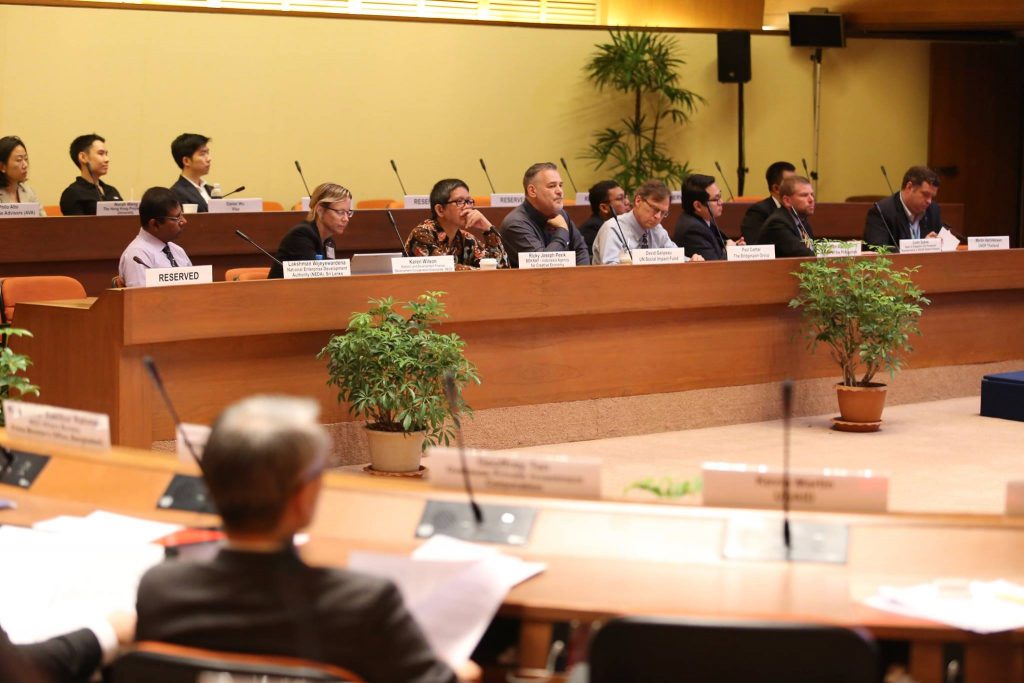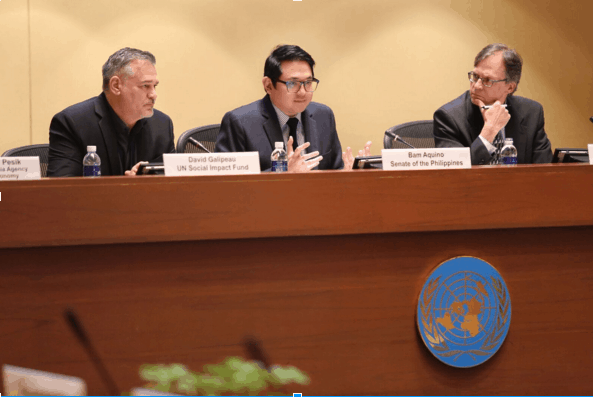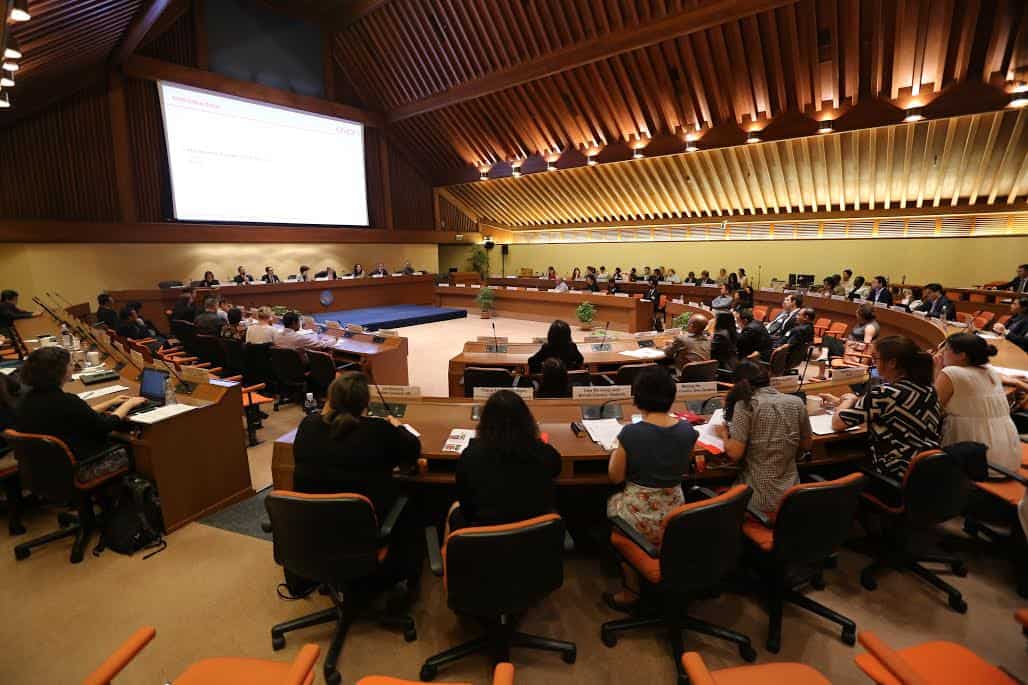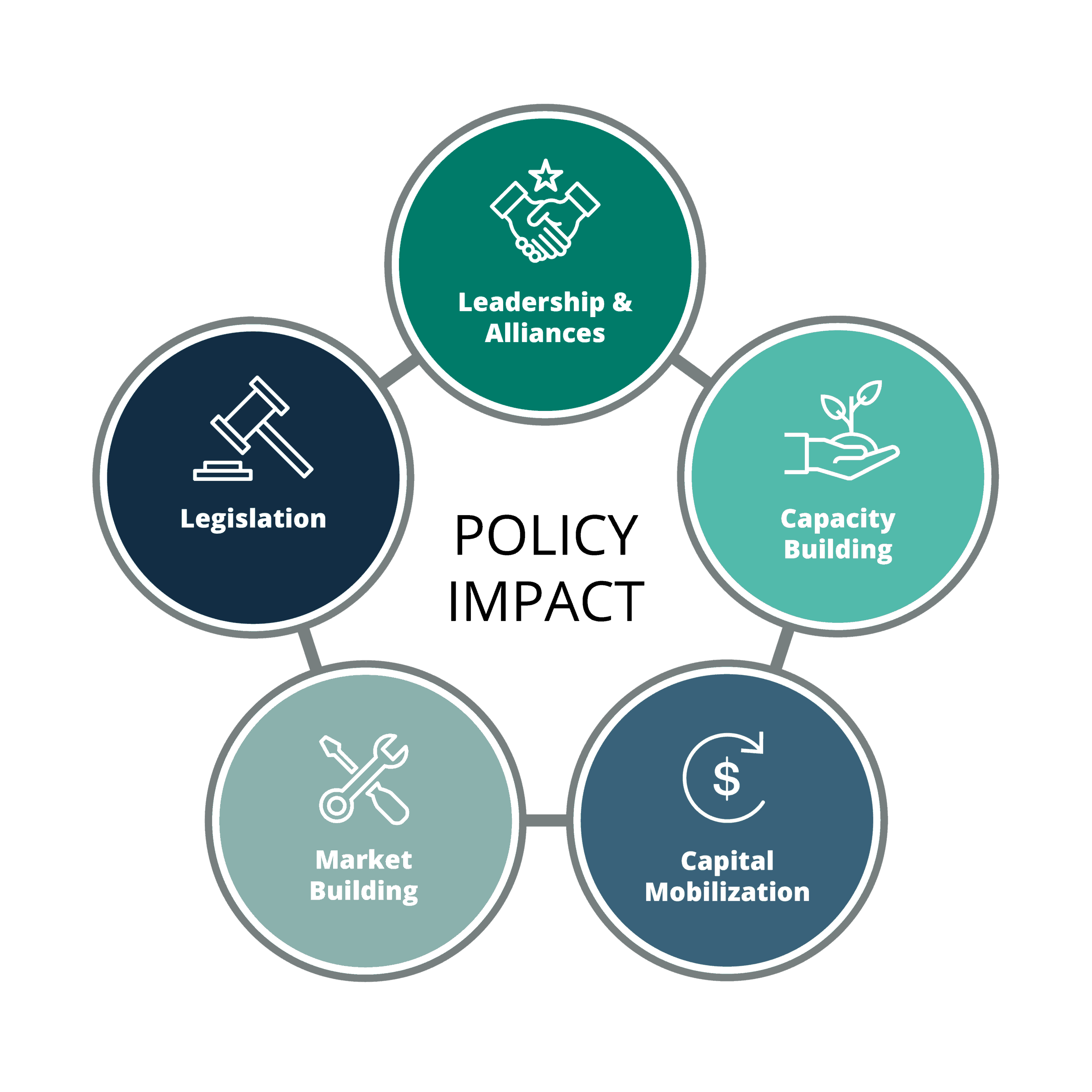Co-author: Anh Nguyen
Building on the success of the 2016 inaugural dialogue in Hong Kong, AVPN held the Asia Policy Forum in Bangkok on 5 June 2017 in partnership with the BMW Foundation, British Council, Credit Suisse and UNESCAP. The Forum is our effort to convene practitioners and advocates for the social economy and provide practical learning opportunities for governments across Asia around social economy development. The 2017 annual summit, centred around “Collaborative Policies to Enhance the Social Economy”, brought together 89 policymakers and practitioners from 21 countries in Asia, Africa, Europe as well as the US, hosted in the UN Conference Center for the first time.
A diversified policy approach: different policies to achieve similar goals
Kick-starting the summit proceedings with the opening keynote, Dr Sathit Limpongpan, Chairman of the National Reform Steering Committee on Economics of Thailand, emphasised the instrumental role that governments play in building a vibrant and high-impact social economy. He outlined several key policy areas central to an effective social economy policy framework, including: 1) tax incentives for social enterprises (SEs), 2) social procurement policies, 3) sensitising mainstream financial institutions to the financing needs of SEs and 4) forging cross-sector collaboration.
The opening plenary on “How Social Economy Policies Benefit from Cross-Sector Collaboration” provides a deep dive in different collaborative social economy policy initiatives from the Philippines, Indonesia, the US as well as multilateral perspectives from the UN. Their sharing underscored the importance of cross-sector engagement and partnerships in shaping the social economy, guided by the local development contexts. While local circumstances may vary, Asian nations are striving towards the common objective of inclusive growth, which has served as a key imperative for the development of the social economy. Panellists also highlighted the artificial divide between economic growth and public good and concurred that both can and should work together on the basis of aligning common goals. In terms of policy formulation, while Indonesia’s approach is largely top-down through interagency coordination, ecosystem building, and promoting R&D, the Philippines focuses on getting the market to move through the three-pronged approach of money (capital mobilisation), mentorship (capacity building) and market (market building).
A clearer SE policy and regulation as a part of the entire SE ecosystem can also be seen in Thailand, as shared by Mr Kiatchai Sophastienphong, Vice Minister for Finance of Thailand. Under Thailand’s showcase, he provided an update on the country’s draft Social Enterprise Promotion Act (SEPA). In addition to offering a more granular legal definition of SEs based on impact areas, the Act also stipulates an improved certification process that allows SEs to receive customised government support and capacity building required to succeed at scale. The Thai government is working on a standardised impact assessment framework to complement the certification and monitoring and evaluation processes. In short, Thailand’s social economy policy work can be characterised by legal and tax support to empower impactful ecosystem building.
Sri Lanka’s social economy policies are embedded in the country’s overall micro, small and medium enterprise (MSME) development policy framework, which aims to create an enabling environment for all enterprises to thrive. While the definition of SEs is still up for debate in the country, support for MSMEs is well-defined, which serves as a catalyst for SE growth. With the establishment of the Sustainable Development Council, more incentives are under way for enterprises focusing on addressing environmental issues.
A focused approach: best practices in 5 policy realms
Breakout discussions saw delegates brainstorming solutions along 5 social economy policy realms to some of the most pressing societal challenges in Asia including ageing population, education and rural livelihoods. Successful implementation and ways to scale-up social economy initiatives such as social impact bonds in Seoul and cultivating the social innovation culture in Shenzhen were also discussed in-depth.
Next Steps
The rapidly evolving nature of the Asian social economy necessitates not only collaborative and innovative policy approaches but also synergies for multi-stakeholder partnerships that break down silos. With the Asia Policy Forum initiative now in its 3rd year, AVPN looks forward to deeper and more relevant engagement locally and regionally with policymakers, so that with the rest of our membership, we can help to build a like-minded community of Asian leaders that will effectively catapult the region towards inclusive and sustainable prosperity.
Following the 2017 summit, AVPN will be working on a framework to support policymaker navigation and development of social economy policies. This framework will guide the online resources that AVPN will curate for social economy policymakers. Upcoming roundtables, working groups and webinars will explore specific topics such as Social Impact Bonds, Benefit Corp Legislation, and Social Economy Policy Levers for Inclusive Growth.
We invite all members of AVPN who are interested in hosting a social economy policy discussion, conduct a capacity-building event in your home country, or share a local social economy policy initiative as a case study, to contact our team at [email protected].
Visit the AVPN APF Resource Portal for information useful for social economy policymakers. This a password restricted resource portal accessible to APF attendees, please contact [email protected] if you need assistance.




















